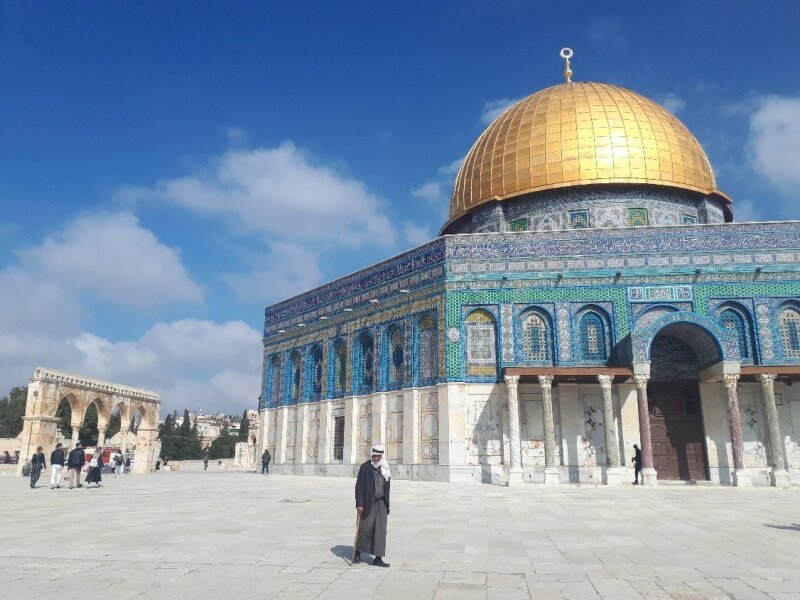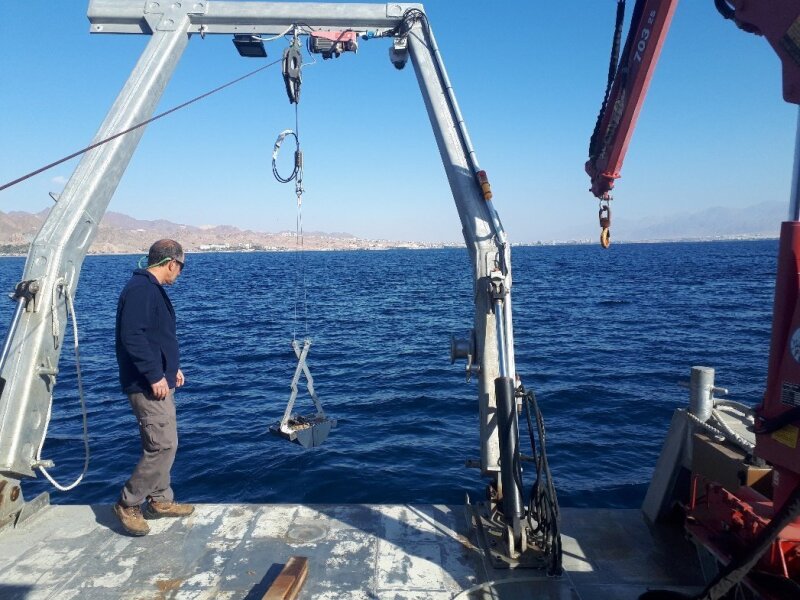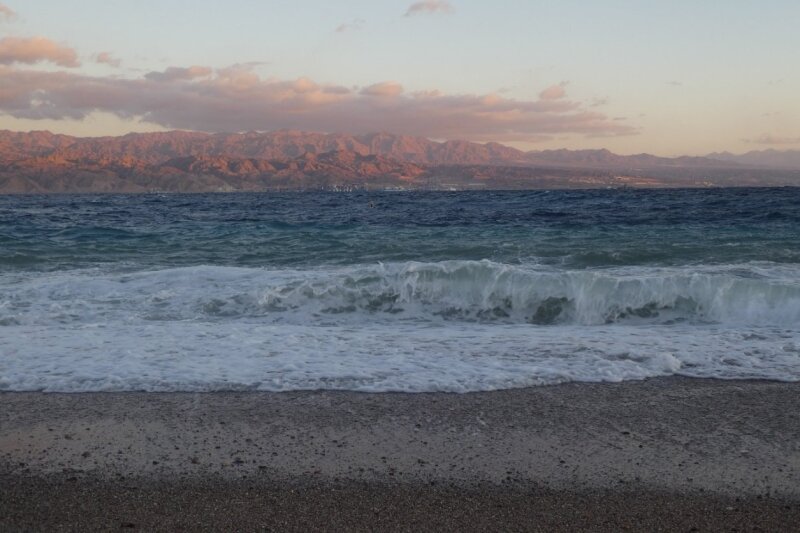Semester abroad Ben Gurion University of the Negev; Be`er Scheva; Israel
Dome of the Rock in Jerusalem
Image: Jonas RuppertUnfortunately, it is not easy for me to write this experience report. In any case, I had an eventful semester in Be`er Scheva. This refers both to studying itself and to student life away from university obligations. However, there were also some not-so-affirming impressions.
First of all, my living and studying situation: While I stayed in a dormitory right next to the main campus of the university, the campus where I had almost all my lectures was located about 1.5 hours away in the middle of the Negev desert. This is because this campus - the Sde Boker Campus - is home to the Jacob Blaustein Institute for Desert Research and is thus the campus for the lectures and research regarding desert studies, hydrology, geology and parts of biology. One piece of advice that I would like to pass on is to insist on a place in a dormitory on this campus when applying and not to be turned away by the coordinators. Although you give up Be`er Scheva as a place with a little more life, activities and better connections, but you save the almost daily commute and live with the people with whom you also study. In addition, the campus is beautifully landscaped and juts out over cliffs into the Ein Avdat National Park.
View from Sde Boker to Ein Avdat
Image: Jonas RuppertMy dorm in Be`er Sheva itself was perfectly adequate for studying. Unlike in Sde Boker (apartments), you live in dorms here. Since most of the exchange students live here, it was not difficult to get to know each other and to get used to the semester abroad. What should be noted here, however, is that due to two different semester starts - the humanities already start in September, while I only started at the end of October - a large part of the exchange students from other faculties were already on their way back by Christmas and it became a bit empty in the dorms.
There is a large selection of master modules available for studying, all of which are offered in English. Especially on the Sde Boker campus, you study together with people from all over the world. However, I also had a course that changed from Hebrew to English without any problems because of me. As already mentioned, the theoretical module selection is very large, but I personally had to change or switch a lot in the beginning, because not all courses were available in the semester, too few students registered due to time overlaps or because my prior knowledge in the subject area was too low. In general, I felt that there were big differences between the modules in terms of the knowledge imparted, the knowledge transfer and the workload. While some modules were similar to an introductory course in the bachelor's degree, others were very similar to the specification. Besides Biology and Biotechnology of Microalgae and Remote Sensing for Agriculture Rangleland and Forestry, I took the highly recommended courses Conservation Ecology, Hydrometeorology and Marine Sedimentology: Collection, Description and Interpretation of Red Sea Sediments. Above all, I can only advise an intensive course like the last mentioned at the Red Sea. Although the workload was quite heavy, the mixture between practical and theoretical work at the campus of Eilat, which is located directly at the sea, was very exciting.
On the research vessel of the Eilat campus
Image: Jonas RuppertThe campus and the city of Be`er Sheva offer a lot of possibilities for student life. In addition to the already mentioned good starting point for trips to all of Israel, the university has a decent range of sports and swimming facilities and courses, festivals and events, as well as a cinema on campus. The city itself is also inviting with pubs, festivals, cinemas and a bouldering hall. Many events are also organized throughout the semester especially for the exchange students. For example, the organization team has planned joint celebrations, trips to Masada, to the Negev or to Mea Shearim - the strictly orthodox quarter of Jerusalem. In general, the organizing team has been very active and quick to help in any situation. Also a good tip is the weekly Language Table, which is a very good opportunity to get to know other international and Israeli students. Unfortunately, I came across it relatively late myself. In order to learn Hebrew properly, this date is probably only suitable to a limited extent. For this purpose, the university organizes a beginner's language course especially for the international students, but I can't say much about it because of course overlaps. This course is certainly recommended for a deeper immersion in the country, but it is by no means absolutely necessary to communicate in Israel.
Israel in itself is a very beautiful and interesting country, especially if you are passionate about the cultures and history of the country as well as immersing yourself in the breathtaking landscapes. Places like Jerusalem, Hebron, the Dead and the Red Sea, Tel Aviv, Jericho or the Negev are very worth seeing and easy to reach due to the small size of the country, the central location of Be`er Scheva and the well-developed public transport. Traveling to the West Bank is often a bit more adventurous, but still always without problems.
Sunset at Eilat Campus
Image: Jonas RuppertUnfortunately, the country is also quite expensive. Apart from trains and buses, prices are higher than in this country. However, with an ErasmusPlus scholarship, you shouldn't have to worry about money. One last tip: Don't skimp on warm clothes. Especially in the winter months, the low temperatures should not be underestimated, but even in summer, the AC is usually turned up full.
All in all, the semester was a bit mixed in parts, but also full of great memories. The knowledge and impressions from the modules on Conservation Ecology and Marine Sedimentology of Red Sea Sediments will stay with me for a long time. As will the trips to the beautiful cities and areas of the country steeped in thousands of years of history. While within exchange programs in Europe it is often mainly other people from the same continent, I also had the opportunity to meet people from all over the world.



